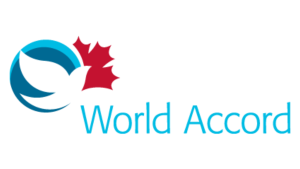Foundation for International Development Assistance / Productive Cooperatives (FIDA) – Haiti
FIDA has been supporting productive work through cooperatives in Haiti for more than 17 years. FIDA has provided cooperative and agricultural resources to 37 cooperatives encompassing more than 7,000 members. It provides agricultural credit and training in cooperative management and sustainable agriculture/environmental practices to help increase productivity and generate economic activity. FIDA also contributes to building grain storage units, agricultural supply stores and health clinics, all within the context of the cooperative model.
FIDA/pcH has been working in the community of Fon Batis, in the Ouest department of Haiti, for more than two decades. FIDA/pcH currently partners with eight agricultural cooperatives in the region. Several of these cooperatives recently benefitted from the construction of new storage facilities for seeds and harvested crops, increasing their capacity to provide food and incomes for farmers and other community members. The cooperatives are well-established and over time have evolved and strengthened to become leading grassroots development organizations in the community. This project will support some members of three of these cooperatives in Fon Batis with seeds, training, tools and access to credit.
Location
Duchity, Grand Anse
PROGRAMS
Credits
Loans to help farmers expand or establish bean and yam cultivation. These crops are intended to supplement diets and incomes.
Sustainable Agriculture Training
Training farmers in training in the production and use of organic composting and pest management.
Literacy Training
A course oriented to enhancing basic literacy and numeracy skills needed to stimulate participant skills and the long-term viability of the cooperative.
HAITI
Haiti is the poorest and most environmentally degraded country in the Western Hemisphere. It has a population of 10 million inhabitants. 8 of very 10 Haitians live in poverty, and 1 in 5 in absolute poverty. Its per capita GDP places Haiti 208th in the world. Half of all Haitians are not able to read or write. On January 12, 2010, Haiti experienced a massive earthquake measuring 7.3 on the Richter scale, causing enormous physical, social and psychological damages. The disaster caused a large shift in population, with many fleeing the capital of Port-au-Prince for the mountains or rural towns. The country continues to recover from this situation.
Duchity is situated at the edge of the department of Grand Anse in southwestern Haiti. It is a very active community that is full of agricultural potential. This community has a population of approximately 5,000. This was once an active coffee growing area, but this was replaced by other crops following a decline in prices since 2000. Areas covered with coffee trees began to disappear to make way for other crops such as beans. Further introduction of plants requiring full sun, along with the need for charcoal due to a lack other energy sources in Haiti served to accelerate deforestation.
Over 60 percent of members of the target group have no knowledge of reading or writing. This is a major obstacle to improving agricultural production and prevents the development of local leadership. Participants principally came from Gorgette cooperative which is comprised of 360 members; 260 women and 100 men. Its members make their living entirely from agriculture.
| Haiti | Canada | |
|---|---|---|
| Population | 9.9 Million | 35.1 million |
| Size | 27.75 km2 | 9.9 million km2 |
| Ranking- Human Development Index | #161in the world | #11 in the world |
| Life Expectancy | #186 in the world | #13 in the world |
| Population below the Poverty Line | 80 % | 9.4% |
| Carbon Footprint per person | #190 in the world | #14 in the world |
| Employment in Agriculture | 38.1% | 2% |
| Internet Users | 9% | 82% |
| Women in Parliament | 4.2% | 25% |
| Cost of Basic Needs Basket for a Family of 4 | $2,300 | |
| Average Monthly Minimum Wage | $103 | $1,690 |
| GDP per capita | #154 in the world | #27 in the world |
